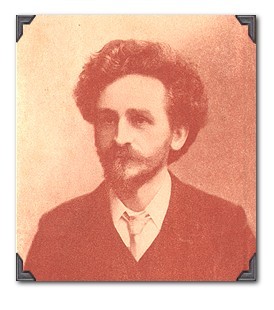Autumn arrives so quickly. Even if you think you're ready for it, you're never quite ready. It comes so easily, so naturally.
Once there were signs of growth all around. Then the colors begin to shift and life begins to pull in upon itself. In autumn you come to realize that the time you have before you is less than the time behind. The possibilities you can entertain have narrowed. There is a tension in the air. You feel so young, yet you know you're growing older. You feel so sure, and so uncertain; so experienced, and so uninformed. You have learned so much, and there is so much yet for you to discover.
You have, in the autumn of your life, a rare opportunity. From this perspective - one you've never had before - you can view your life from a distance. You can see where your years have led you, what they have given you, what they have taken from you, how they have formed you. You can also look into your future and plan and hope and dream. And you can take the time to look for something you've always been looking for, even if you haven't put it into words: the meaning in your life.
Your journey through life is uniquely yours and no one else's. You are your own person, you have lived your own original life, and you will die your own unique death. You dare not expect, therefore, that your journey will be everyone's journey.
Come autumn, some people are serene and some are passionate. Some are content, and some wrestle. Some are hopeful, and others are afraid. Some are hesitant, and others are bold. You are called to make your own personal quest. Like every seeker who ever lived, like every one who ever will live, you must walk your own walk, and you must discover for yourself.
Your task is to seek what is timeless and true. And the place to begin is right where you are. The place to look is deep within yourself.
Following your chosen path requires courage. For you can never be sure what you will find, or when you will find it, and where, or how. Unless you begin your search, and unless you persevere, the answers you seek will not be your answers.
They will belong to someone else.
And in the autumn of your life, you stand to miss too much to allow that to happen.
So find the path that you believe leads to meaning. And then follow it. Your time of decline is a time of ascent. A peak has been passed. A turn has been made. Nature is having its way, as nature always does. But the way of nature is not the way of the spirit. They operate on different principles, they follow different laws, and that's easily forgotten.
Yes, physically you decline; outwardly you begin to diminish. But inwardly and spiritually, the opposite happens. The spiritual part of you grows with age. It becomes richer, fuller. It has more to offer, not less. It has something greater to share with the passing years. It climbs higher. Or, more accurately, the spiritual part of you can climb higher.
But it will do so only if you allow it: only if you make time in your life to reflect; only if you give yourself the opportunity to see what has long been waiting for you; only if you allow yourself the chance to listen to what you've always been meant to hear.
A twelfth-century prayer expresses this autumn hope:
O Lord,
May the end of my life be the best of it.
And may my closing acts be my best acts.
In the autumn of your life you can come to realize that what this prayer asks for is within your grasp - your closing acts can be your best acts.
All you have to do is follow your spirit, and follow the Spirit.
- This writing is excerpted from the book Autumn Wisdom: Finding Meaning in Lifeís Later Years by James E. Miller.

About the Author
Willowgreen is the life's work of James E. Miller. He designs resources and creates programs in the areas of life transition, illness and dying, loss and grief, caregiving, older age, and spirituality. In addition to the text like you read here, this book contains pages of quotations, full-color photography, and suggestions for applying the thoughts proposed in each chapter. Jim has also created a videotape that bears much similarity to this book (the videotape was actually created first): Gaining a Heart of Wisdom: Finding Meaning in the Autumn of Your Life. Working with elder adults was the topic of Jimís doctoral dissertation. Please visit Willowgreen to see their complete line of inspirational books and videotapes.
Surely God would not have created such a being as man, with an ability to grasp the infinite, to exist only for a day! No, no, man was made for immortality.
Immortality is here and now, and is not a speculative something beyond the grave. It is a lucid state of consciousness in which the sensations of the body, the varying and unrestful states of mind, and the circumstances and events of life are seen to be of a fleeting and therefore of an illusory character.
Immortality does not belong to time, and will never be found in time; it belongs to Eternity; and just as time is here and now, so is Eternity here and now, and a man may find that Eternity and establish in it, if he will overcome the self that derives its life from the unsatisfying and perishable things of time.
Whilst a man remains immersed in sensation, desire, and the passing events of his day-by-day existence, and regards those sensations, desires, and passing events as of the essence of himself, he can have no knowledge of immortality. The thing which such a man desires, and which he mistakes for immortality, is persistence; that is, a continous succession of sensations and events in time. Living in, loving and clinging to, the things which stimulate and minister to his immediate gratification, and realising no state of consciousness above and independent of this, he thirsts for its continuance, and strives to banish the thought that he will at last have to part from those earthly luxuries and delights to which he has become enslaved, and which he regards as being inseparable from himself.
Persistence is the antithesis of immortality; and to be absorbed in it is spiritual death. Its very nature is change, impermanence. It is a continual living and dying.
The death of the body can never bestow upon a man immortality. Spirits are not different from men, and live their little feverish life of broken consciousness, and are still immersed in change and mortality. The mortal man, he who thirsts for the persistence of his pleasure-loving personality is still mortal after death, and only lives another life with a beginning and an end without memory of the past, or knowledge of the future.
The immortal man is he who has detached himself from the things of time by having ascended into that state of consciousness which is fixed and unvariable, and is not affected by passing events and sensations. Human life consists of an evermoving procession of events, and in this procession the mortal man is immersed, and he is carried along with it; and being so carried along, he has no knowledge of what is behind and before him. The immortal man is he who has stepped out of this procession, and he stands by unmoved and watches it; and from his fixed place he sees both the before, the behind and the middle of the moving thing called life. No longer identifying himself with the sensations and fluctuations of the personality, or with the outward changes which make up the life in time, he has become the passionless spectator of his own destiny and of the destinies of the men and nations.
The mortal man, also, is one who is caught in a dream, and he neither knows that he was formerly awake, nor that he will wake again; he is a dreamer without knowledge, nothing more. The immortal man is as one who has awakened out of his dream, and he knows that his dream was not an enduring reality, but a passing illusion. He is a man with knowledge, the knowledge of both states - that of persistence, and that of immortality - and is in full possession of himself.
The mortal man lives in the time or world state of consciousness which begins and ends; the immortal man lives in the cosmic or heaven state of consciousness, in which there is neither beginning nor end, but an eternal now. Such a man remains poised and steadfast under all changes, and the death of his body will not in any way interrupt the eternal consciousness in which he abides. Of such a one it is said, "He shall not taste of death", because he has stepped out of the stream of mortality, and established himself in the abode of Truth. Bodies, personalities, nations, and worlds pass away, but Truth remains, and its glory is undimmed by time. The immortal man, then, is he who has conquered himself; who no longer identifies himself with the self-seeking forces of the personality, but who has trained himself to direct those forces with the hand of a master, and so has brought them into harmony with the causal energy and source of all things.
The fret and fever of life has ceased, doubt and fear are cast out, and death is not for him who has realised the fadeless splendour of that life of Truth by adjusting heart and mind to the eternal and unchangeable verities.

- This writing is excerpted from the book Above Life's Turmoil by James Allen.
About the Author
James Allen was born in Leicester, England on November 28, 1864. When he was fifteen, the family business failed and his father left for America to find work. His father was murdered before he could send for the family and subsequently, James left school and worked for several British manufacturers until 1902. His literary career lasted only nine years until his death in 1912. "As A Man Thinketh" was his second book. In fact, it was only upon his wife's insistence that he published the book.
Michael
email: Michael@N-Spire.com - or, send your
 to me right now!
to me right now!